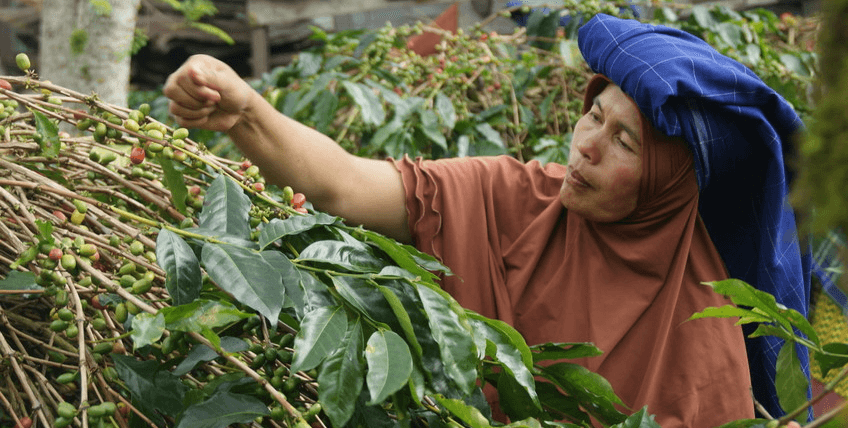Fairtrade measures to protect human rights and tackle the effects of COVID in food supply chains have been acknowledged in a discussion paper by Oxfam, From Risk to Resilience, published today.
Although the discussion paper called for fundamental change to address some of the improvements needed to end exploitation of food producers in the global south, the researchers also highlighted the ways Fairtrade and other organisations had tackled some of the issues, which included low wages, gender inequality, lack of recognition of workers’ rights and protecting people during the pandemic.
- Wage agreements introduced with the help of Fairtrade International led to pay increases of between 30-120 per cent for flower workers in Tanzania, Uganda and Ethiopia, researchers found.
- Changes to the Flower Standards by the Fairtrade Foundation raised the minimum wage in the industry in Tanzania by 30 per cent (110)
- Fairtrade also introduced temporary changes to the use of Fairtrade Premium, the extra payment to producers, so it could be used to pay wages, furlough and fund public health responses to COVID. Fairtrade-certified co-ops raised awareness of safety measures, and helped with sanitation and prevention measures in their communities. (124&126).
- The German supermarket Rewe, through its partnership with Fairtrade, was found to have made long term agreements with small producers which supported their collective organisation and appropriate pricing through specific projects.
There was also an increased demand among investors for ethical products, and companies with embedded human rights often out-performed their competitors, the discussion paper found.
Oxfam interviewed 26 experts in the global food industry from the private sector, civil societies, NGOs and academia, including Tim Aldred, Fairtrade Foundation’s Head of Policy.
For more information, contact the Fairtrade Foundation: MEDIA@FAIRTRADE.ORG.UK / 020 7440 7692
Read the Oxfam report ‘From Risk to Resilience’
END
Notes for Editors
The Fairtrade Foundation is an independent certification body which licenses the use of the FAIRTRADE Mark on products which meet international Fairtrade standards. This independent consumer label appears on products to show that disadvantaged producers are getting a better deal from trade. Today, more than 1.66 million people – farmers and workers – in 1,411 producer organisations across the Fairtrade system.
Over 6,000 products have been licensed to carry the FAIRTRADE Mark including coffee, tea, herbal teas, chocolate, cocoa, sugar, bananas, grapes, pineapples, mangoes, grapefruit, lemons, oranges, satsumas, lychees, coconuts, dried fruit, juices, smoothies, biscuits, cakes & snacks, honey, jams & preserves, chutney & sauces, rice, quinoa, herbs & spices, seeds, nuts & nut oil, wines, rum, confectionary, muesli, cereal bars, yoghurt, ice-cream, flowers, sports balls, sugar body scrub and cotton products including clothing, homeware, cloth toys, cotton wool, olive oil, gold, silver and platinum.
Public awareness of the FAIRTRADE Mark continues to be high in 2020, at a level of 91 per cent.
